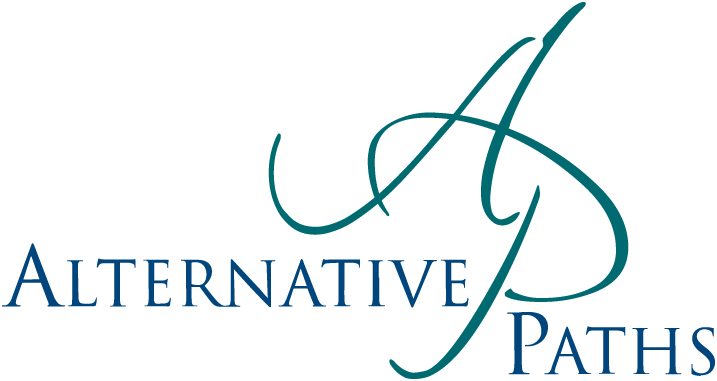
ADULT ALCOHOL AND DRUG SERVICES
Substance Abuse counseling services utilize special skills to assist an individual in achieving their treatment goals through the exploration of the problems and negative consequences of their use of alcohol and drugs.
Alternative Paths’ clinicians utilize evidence-based techniques to provide individuals with the skills and tools necessary to maintain abstinence from alcohol and other drugs in order to provide an opportunity for recovery.
Substance abuse counseling may occur individually or in group sessions, as clinically indicated.

CASE MANAGEMENT SERVICES
Substance abuse case management services provide individuals with substance use disorders support and assistance in gaining access to needed medical, social, educational, and other services essential to meeting their basic needs in order to support recovery.
Substance abuse case management services include the following:
Linkage to community resources
Assistance in obtaining housing, financial assistance, food, clothing, and other needs.
Assistance with finding work
Care coordination with medical, educational, vocational, and recreational services.
Assistance in connecting with self-help support groups
Assistance in building and increasing social support networks to promote recovery.
Assistance in performing daily living activities
Coordinating criminal justice services
Substance abuse case management services may be provided in the home, school, work, or other community settings.

PEER SUPPORT SERVICES
Peer support services are a recovery support services provided in conjunction with other treatment activities to promote recovery, self-determination, self-advocacy, well-being, and independence for the individual served.
Peer support services are provided by an individual with lived experience and sustained recovery from substance abuse. Peer support services include the following:
Supporting independence in the individual served
Providing encouragement and hope
Supporting the development of necessary life skills to promote recovery
Modeling personal responsibility for recovery
Teaching skills for sustained recovery
Empowerment through self-advocacy
Assistance in developing necessary recovery support

INTENSIVE OUTPATIENT SERVICES
Intensive Outpatient Services (IOP) is available for individuals who require the intensive outpatient level of care after the completion of a comprehensive assessment of the individual’s needs.
Intensive Outpatient services take place for a minimum of nine hours per week. This intensive program is a “bundled” service, which includes:
Assessment
Individual Counseling
Group Counseling
Case Management (if needed)
Crisis Intervention (if needed)
IOP services take place for a minimum of three days per week, with group sessions meeting three days per week. Individual counseling and case management services may take place as needed and require additional days.
Intensive Outpatient services require certain expectations for participation and successful completion of the program. These expectations are outlined and provided to the individuals upon admission to the program.

MEDICATION ASSISTED TREATMENT
Alternative Paths partners with the Medina County Health Department’s Free Clinic to provide clients of Alternative Paths with opiate dependence the opportunity to participate in a medication-assisted treatment program.
Medication Assisted Treatment is an evidenced-based treatment, that when coupled with meaningful treatment services such as counseling, can provide better treatment outcomes for program participants. Alternative Paths, in coordination with the Medina County Health Department operates a Naltrexone (Vivitrol) program to assist individuals with opiate dependence.
Alternative Paths provides counseling and case management services and coordinates a monthly medication administration for the client at the Medina County Health Department.
Individuals interested in the Medication Assisted Treatment program at Alternative Paths should inquire with their treatment provider during their assessment to find out specific information and discuss whether Medication Assisted Treatment is right for them.
